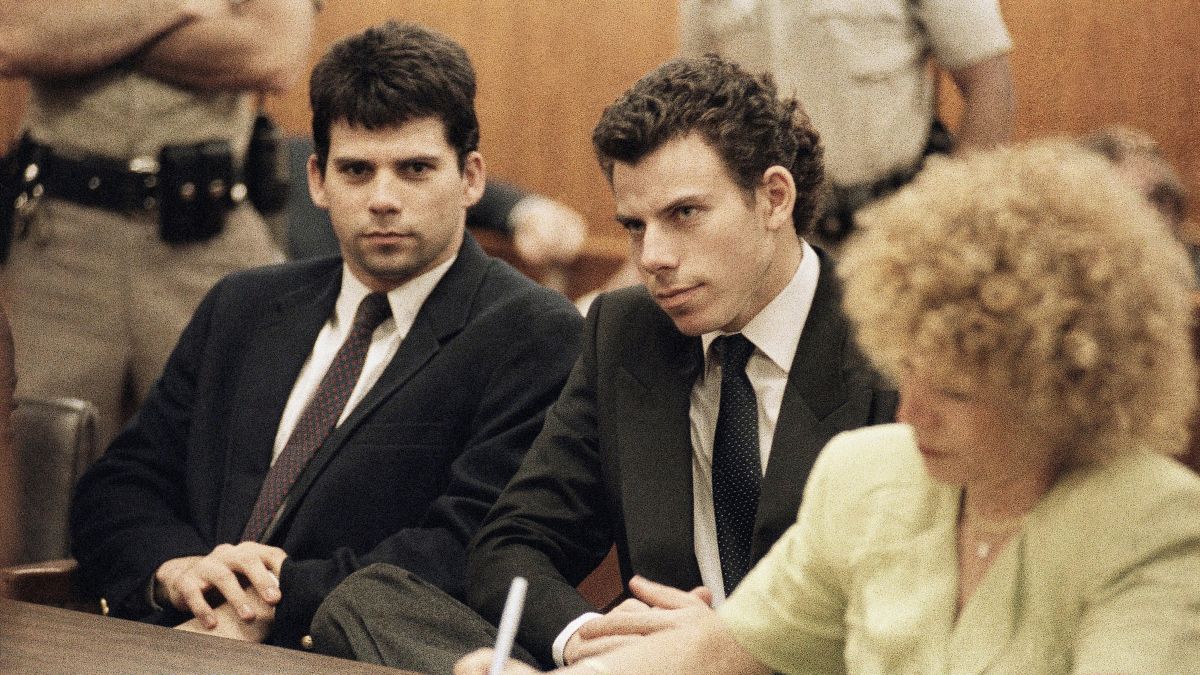Lyle Menendez was denied parole on Friday, just a day after his younger brother Erik received the same outcome from a California state parole board.
Their individual hearings this week took place nearly three decades after both were found guilty of first-degree murder in connection with the 1989 deaths of their parents.
In 1996, the brothers were sentenced to life in prison without the possibility of parole.
However, in May a Los Angeles judge modified their sentences to 50 years to life.
Because the Menendez brothers were under 26 when the crimes occurred, they immediately qualified for parole consideration under California law.
Who are Lyle & Erik Menendez, and what did they do?
Lyle and Erik are the children of Jose and Kitty Menendez. Their father, a Cuban-American businessman who once served as an RCA Records executive, relocated the family from Princeton, New Jersey, to California during the brothers’ teenage years.
On August 20, 1989, Lyle called 911 to report that his parents had been fatally shot inside the family home.
Initially, both brothers told investigators the murders were tied to the Mafia or their father’s business connections.
At the time, Erik was 18 years old and Lyle was 21.
Following their parents’ deaths, the brothers had access to substantial wealth and spent lavishly on luxury watches, vehicles and real estate.
But two months later, Erik admitted to his psychologist that he and his brother were responsible for the killings.
What charges did they face?
The Menendez brothers were arrested in early 1990 and charged with first-degree murder. Their defence argued that they suffered years of emotional and sexual abuse from their father, while prosecutors maintained that financial gain was their true motivation.
Their first trial began in 1993.
Defence attorneys acknowledged the brothers committed the murders but argued they acted out of fear for their lives. The trial ended with deadlocked juries.
In 1995, a new jury found them guilty on three counts, including first-degree murder, along with enhancements for lying in wait and special circumstances.
The following year, they received life sentences without parole.
How was life behind bars for the brothers?
Over the years, the brothers filed numerous appeals, all of which were rejected by both state and federal courts.
During their time in prison, they pursued education, took part in self-help courses, and created support groups for fellow inmates.
They also initiated a prison beautification programme modelled after the Norwegian system, which focuses on rehabilitation through humane prison environments and natural surroundings as a way to aid reintegration into society, even for those convicted of severe crimes.
Public fascination with their case has endured. The brothers became well-known figures and were the focus of multiple true-crime productions, including the 2024 Netflix series “Monsters: The Lyle and Erik Menendez Story.”
Shortly after the series aired, then-Los Angeles County District Attorney George Gascón revealed he was reviewing new evidence.
By October 24, 2024, prosecutors announced they would request the court to re-sentence the pair.
In May this year, a US Superior Court judge reduced their punishment to 50 years to life, immediately opening the door for parole eligibility.
What has been the role of the parole board?
The parole board determines whether an inmate presents an “unreasonable risk of danger to society” if released.
According to the California Department of Corrections and Rehabilitation, they consider a range of factors, including the crime itself, the offender’s past, signs of remorse, conduct while incarcerated, and plans after release.
Almost all of the Menendez brothers’ relatives have expressed support for their release.
Their uncle, Milton Andersen, was a notable opponent, but he passed away from cancer in March.
What next for the Menendez brothers?
The California board issued both brothers three-year parole denials.
Nonetheless, they may undergo administrative review within a year and could have another hearing in as little as 18 months.
They also still have a habeas corpus petition pending from May 2023, seeking to challenge their convictions with new evidence backing their allegations of abuse by their father.
With inputs from AP
)